 Your new post is loading...
 Your new post is loading...
"It comes as no surprise that the Internet grows exponentially by the minute, and in some cases by the second. It’s too late to turn back the clock, and it’s no wonder that our learners view school regulations of social media archaic and restrictive. We see the weekly chats with frustrated teachers who try to get colleagues to see the benefits of Twitter; yet this is not even the most popular media with our tweens, let alone young people under thirty."
"Sixty seconds seems like an insignificant amount of time, but when you look at it in terms of how much data is created, there’s a whole lot going on. Almost two years ago, we created an infographic to highlight just how much digital data was generated every minute. The numbers were staggering. Recently, we decided …"
"Continuing to teach in the stretching shadow of technology while only dealing with it through glimpses and gimmick is an awkward arrogance we may be dealing with for some time to come. But while education bickers on about how to best educate children, those children are making powerful moves–sometimes intentionally, sometimes as thoughtless, drifting trends–to fully reinvent the way human beings connect."
How has the Internet evolved over the last 10 years? "This infographic will take you on a journey to the past, where web pages had no pictures (slower internet speeds back then) and where everything looked like it was just copied and pasted onto the website." And the infographic is animated. Take a loook and see how far things have come when it comes to the Internet!
Do you wonder how to best teach about YouTube and Digital Citizenship? Google has just released a "new interactive curriculum to support teachers of secondary students (~ ages 13-17)." The curriculum has ten lessons: What Makes YouTube Unique, Detecting Lies, Safety Mode, Online Reputation and Cyberbullying, Policy, Reporting Content, Privacy Part 1, Privacy Part 2, Copyright, and Additional Resources/Appendix Including Parent Resources. There is a Teacher's Guide as well as Slides for each lessons.
This interview with Google's Sergey Brin launched a week long series by The Guardian, the Battle for the Internet (begun on Sunday, April 15th). In this interview Brin states "...very powerful forces have lined up against the open internet on all sides and around the world...I am more worried than I have been in the past...It's scary." The web has responded to this interview, and you may read some comments at Gigaom, in a piece 'What the Web is Saying about Sergey Brin and Openness' located at http://gigaom.com/europe/what-the-web-is-saying-about-sergey-brin-and-openness. You may want to follow the series. There are additional articles for the first day (called 'The New Cold War') and day 2 looks at 'The militarisation of the Internet.'
In One Minute, Facebook Logs 6 Million Pages Views, Google Handles 2 Million-Plus Search Queries, Twitter Adds More Than 320 Accounts and the Data Deluge Threatens to Overwhelm Network Infrastructure Network infrastructure as a topic lacks the sex...
This infographic offers a look into the evolving cybercrime motivations and the shifts in the threat landscape.
Internet Slang words - Internet Dictionary. Internet Slang. A list of common slang words, acronyms and abbreviations as used in websites, ICQ chat rooms, blogs, SMS, and internet forums.
We are the Digital Media & Learning Research Hub and our team is dedicated to analyzing and interpreting the impact of the internet, social networking and digital media on learning, participatory politics and youth culture. You can learn more about the work of the research hub at dmlcentral.net. Our goal with this site is to aggregate the compelling research, news and opinion in the digital media and learning field and provide a dependable, up to date, one-stop publication.
With the rapid advancement of the Internet, distance learning is becoming more popular, and more accessible, than ever. Even big-name institutions like Harvard are increasing their offerings of online-only instruction...but how long has distance learning been around. Check out this infographic for more information.
|
The World Wide Web is used every day by millions of people for
everything from checking the weather to sharing cat videos. But what is
it exactly? Twila Camp describes this interconnected information system
as a virtual city that everyone owns and explains how it’s organized
in a way that mimics our brain’s natural way of thinking.
"Working on the Internet every day, you start to have certain suspicions about how it affects the way you think and process information. Turns out, there's something to that."
Cultural anthropologist and media ecologist Mike Wesch examines how the internet has changed communication and relationships today. Mike Wesch, who has a number of viral videos, such as The Machine is Us/ing Us, Information R/evolution and An Anthropological Introduction to You Tube, is currently writing a book about "wonder". Below is a quote from an interview. "I am working on a book about “wonder”—what it is, how to harness it, how to inspire it, why it is on the decline right now, and how to bring it back. Wonder is both a sense of awe and a capacity for contemplation. More than just curiosity, wonder allows us to see beyond the surface of things, to seek patterns, or even better, to question the patterns we have taken for granted. To wonder is to embrace the possibility that we have it all wrong, that the frameworks around which we have built our view of the world might need to change, that the pillars upon which our worldview sit might need readjusting or be destroyed altogether..." For more from Mike Wesch click through to the post.
Do you have any idea of how much data is created every minute? Phones, websites, applications...it is mind boggling. Check out this infographic Data Never Sleeps for more information.
For many, it’s a scary thought. What if the internet simply disappeared tomorrow? What if all of the connections we held and activities we performed online were suddenly not available to us? These are questions that most would not want to answer even if they weren’t actively involved professionally online. Those of us who work online could be devastated. "In case you’re one of those who takes the world wide web for granted, here’s an infographic that takes us through the hypothetical scenario."
The Internet is progressing at such a blistering pace that by 2020, we are probably going to see a lot of changes, hopefully for the better. For example, right now here in 2012, we’re seeing a vast amount of data being uploaded to the cloud, as more...
"Everyone Googles. When you get asked a question and you don’t know the answer – your answer is Google. But is this a good thing or a bad thing? In forensic psychology we dive into the minds of criminals, but because of the internet and sites like Google and Facebook, those minds are being altered...The studies show that the internet is having a negative impact on the way people think, analyze, and remember things. In fact, studies even say that heavy internet use can affect the brain..."
"Nowadays many pupils, when given a research task, immediately might think to themselves, 'I’ll just Google that'...There are many resources now available to help in developing pupil skills in searching more effectively using online search engines. And, of course, when they do find information how do pupils know it is appropriate for the task? Or how do they evaluate what is suitable, and how do they present it and show where the information was found."
At SXSW Interactive, there has been a lot of discussion about data visualizations. The industry has exploded in the last 2 years and is quickly becoming both a preferred way of distributing large chunks of data as well as the bane of content crea ...
Technology | Collusion | The savvy Web user knows that the Internet isn't all fun and games. There are plenty of companies out there watching every move a user makes, with an aim to sending their way ads they will click on. But just how many companies are tracking you can be shocking, especially when you don’t know what they know about you, and you have never in your life heard of them before.
This infographic looks at the Internet's rapid growth in different languages and in non-English speaking regions.
|
 Your new post is loading...
Your new post is loading...
 Your new post is loading...
Your new post is loading...










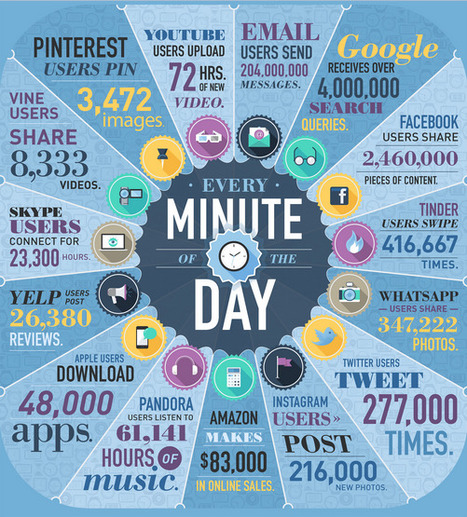
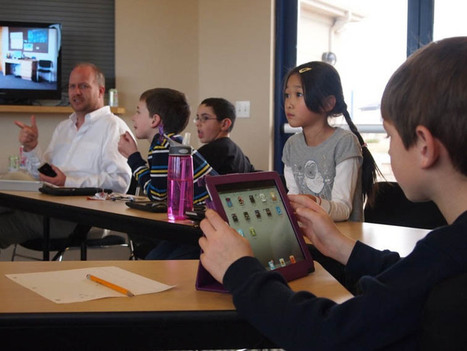
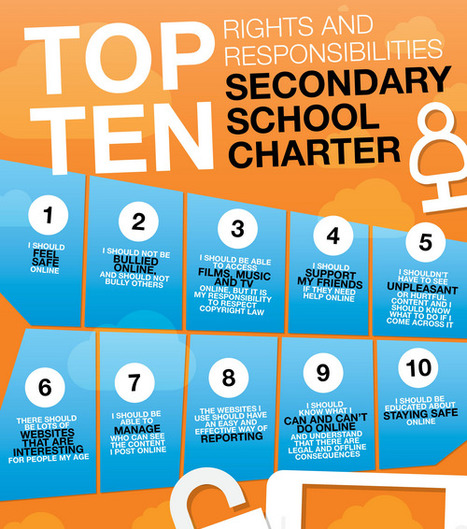
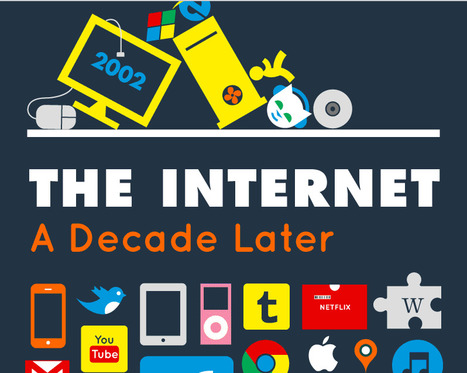
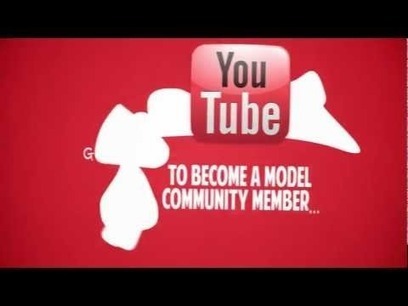

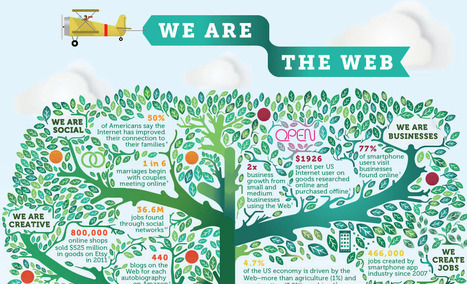

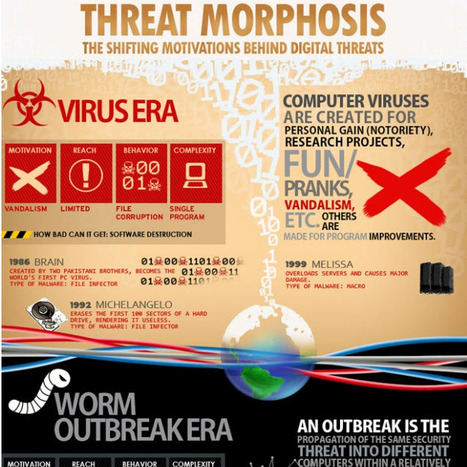

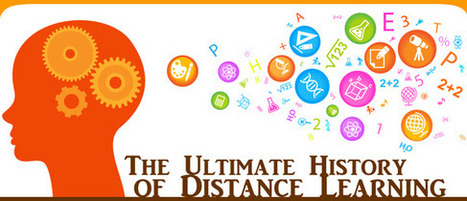
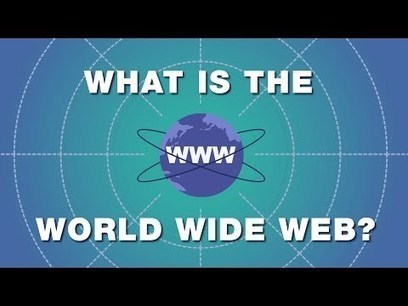
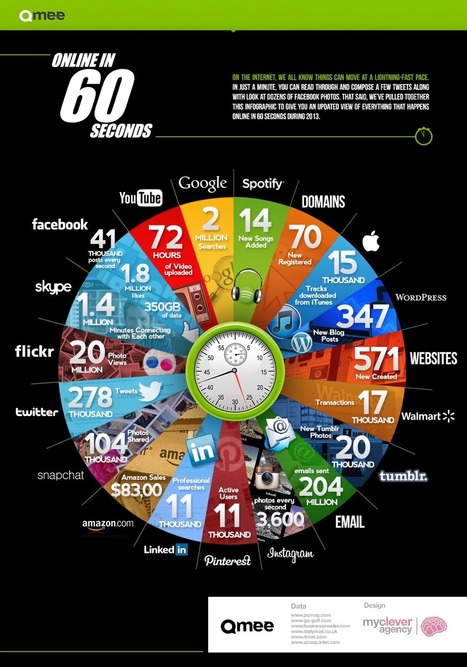

![The Internet May Not Be Doing Our Brains Much Good [Video] | Eclectic Technology | Scoop.it](https://img.scoop.it/QKpk_NmpOe4X88PIkk608Dl72eJkfbmt4t8yenImKBVvK0kTmF0xjctABnaLJIm9)



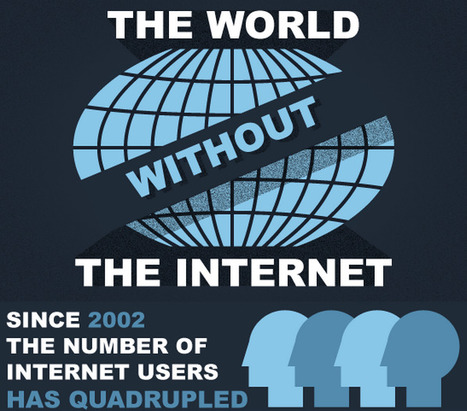

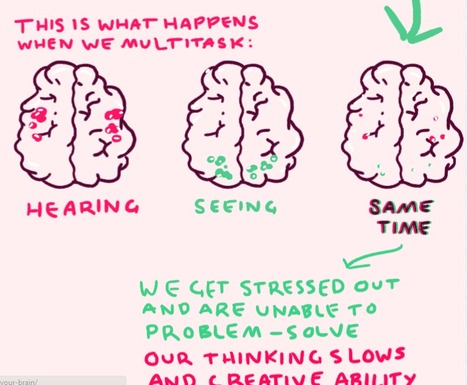
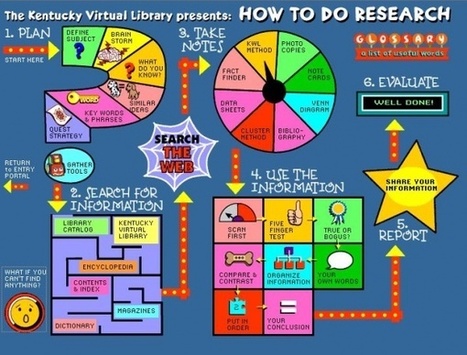
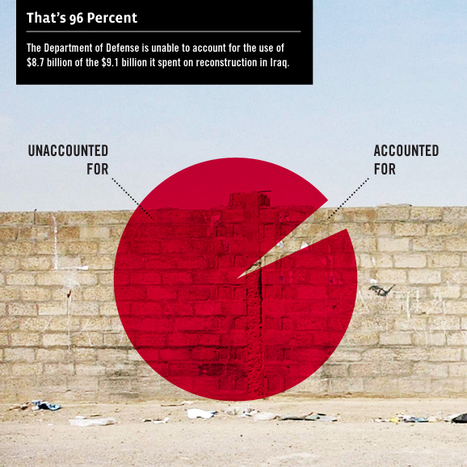
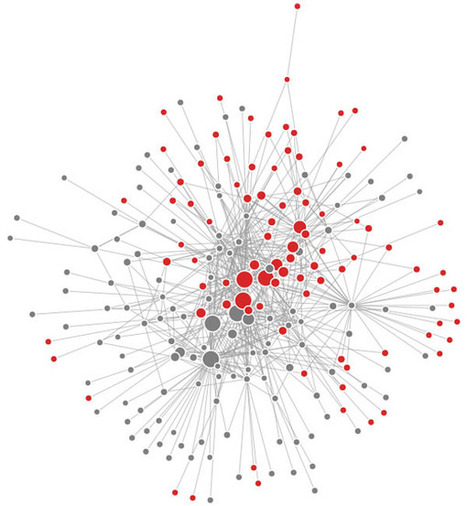
![Is There Too Much English on the Internet? [INFOGRAPHIC] | Eclectic Technology | Scoop.it](https://img.scoop.it/YEQrJ_i3AZkuH_nqEdOUIzl72eJkfbmt4t8yenImKBVvK0kTmF0xjctABnaLJIm9)





Students use social media. Do they know how much social media is used (and do teachers know this information)? This post shares two great websites that provide data on how social media is being used today. Both are interactive, but in very different ways.
The Internet in Real Time provides an up to the second look at 23 social media tools, letting you see how quickly data is generated and you can also see "the real-time accumulation of wealth."
The second resource is an infographic Social Media 2014which looks at ten social media websites and provides "facts, figures, numbers and statistics from 2014." A few are below:
* 23% of teens consider Instagram their favorite social network.
* 100 hours of video is uploaded on YouTube every minute.
Given this data many of us may be questioning policies at our schools. Is it time for public schools to look at how social media is being used by their students when they are outside the walls of the school and understand that social media provides a platform that we could use to deliver lessons?
This post explores this issue and the final sentence reads "The collective consumption of knowledge has changed because of technology, and learners need to be able to use it, search it, and share it." What are your thoughts on this?